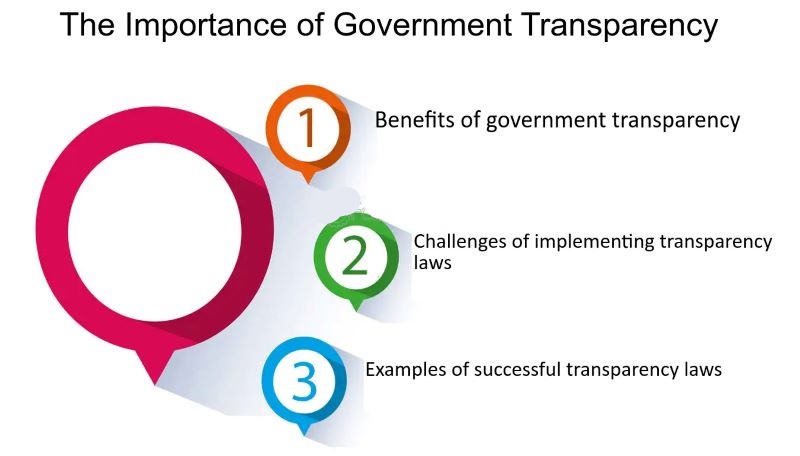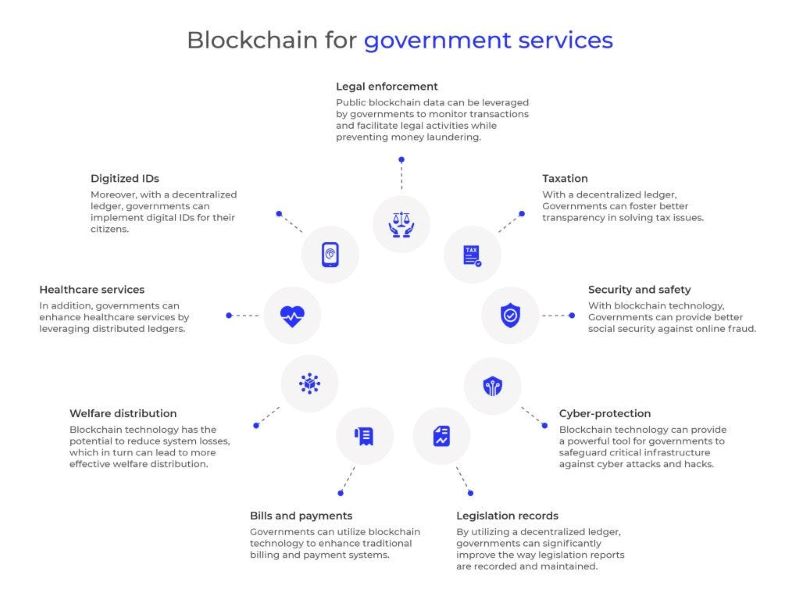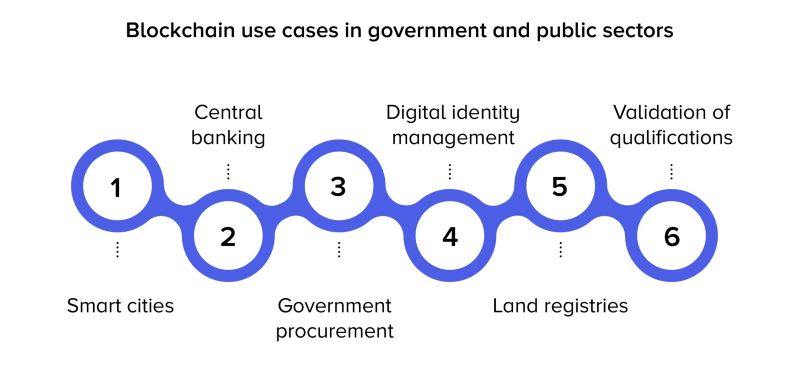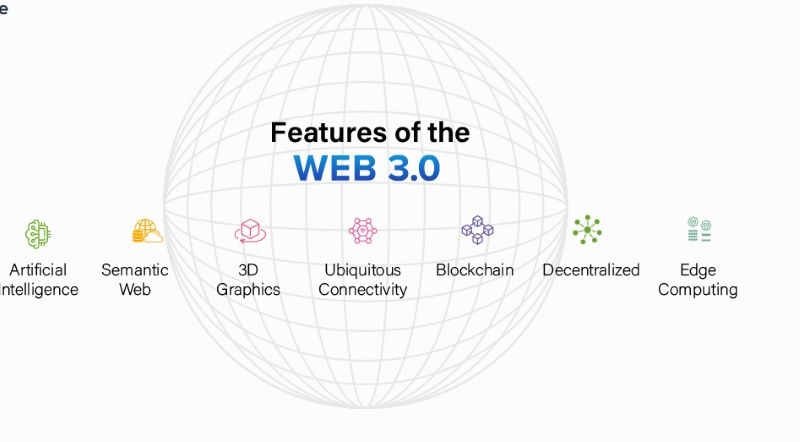Categories: Blockchain
Advancing Public Trust: Blockchain for Government Transparency
"Blockchain for Government Transparency" is revolutionizing public sector accountability. By ensuring immutable records and transparent processes, blockchain technology enhances trust, reduces corruption, and improves efficiency in government operations, driving a more open and honest governance system.
Public trust in governments is waning due to corruption, opaque decision-making, and inefficient public services. The urgent need for solutions that restore transparency and accountability in governance is clear. Enter blockchain technology. By decentralizing data across a distributed network, blockchain for government transparency minimizes risks of manipulation and corruption. Its immutable ledger ensures data integrity and transparency in governmental operations. As governments strive to rebuild public trust, blockchain for government transparency offers a transformative path towards openness, fairness, and efficiency in governance practices.
Table of Contents
Why is Government Transparency important?
In an era marked by growing disillusionment with traditional institutions, government transparency is more crucial than ever. When the inner workings of government are shrouded in secrecy, it breeds suspicion, erodes trust, and undermines the foundations of democracy.
Opacity in government creates fertile ground for corruption to thrive. Decisions made behind closed doors allow for misappropriation of public funds, unfair contract awards, and undue influence by special interests. This not only deprives citizens of their rightful resources but also weakens democratic institutions and erodes the rule of law.
Moreover, lack of transparency breeds inefficiency. Without clear visibility into government operations, identifying bottlenecks, allocating resources effectively, and holding officials accountable become challenging. This can result in wasteful spending, delays in service delivery, and frustration among citizens.

Conversely, transparency acts as a catalyst for positive change. Open and honest government operations foster accountability among officials, encouraging decisions that serve the public interest.
Transparency also empowers citizens to engage in the democratic process. Access to information about government policies, budgets, and decision-making enables informed choices, accountability of representatives, and advocacy for citizen needs.
Additionally, transparency promotes efficient governance. By making data readily available, governments can tap into citizen insights, innovate solutions, and enhance public service delivery.
In essence, government transparency is not merely desirable; it is fundamental to a healthy democracy. By illuminating government operations, we can restore trust in public institutions, combat corruption, and establish a responsive and accountable government that prioritizes the welfare of its citizens.
How Blockchain is Enhancing Government Transparency
Blockchain technology is revolutionizing government transparency by offering secure, decentralized record-keeping solutions. At its core, blockchain operates as a distributed ledger that records transactions securely across a network of computers. This technology ensures transparency by creating an immutable chain of records, making it ideal for documenting financial transactions, managing legal documents like contracts and permits, and safeguarding public records such as land titles and birth certificates.
Moreover, blockchain enhances accountability in government procurement processes by providing end-to-end visibility and preventing fraud through transparent supply chain tracking. It empowers citizens with secure digital identities, allowing them to control and securely manage their personal information. This streamlined identity verification process improves access to government services while reducing risks associated with identity theft.

Furthermore, blockchain's application in voting systems ensures the integrity of democratic processes by enabling tamper-proof voting mechanisms. By recording votes securely and transparently, blockchain reinforces trust in electoral outcomes and strengthens democratic governance.
In essence, blockchain technology is not just a buzzword but a transformative tool that fosters transparency, accountability, and public trust in governmental operations, paving the way for more efficient and responsive public institutions.
Navigating the Challenges: Implementing Blockchain for Government Transparency
Blockchain technology holds immense promise for enhancing government transparency, yet its adoption comes with significant challenges that must be navigated effectively.
Scalability remains a primary concern, especially for governments handling vast amounts of data and transactions. Ensuring blockchain solutions can scale without compromising speed or efficiency requires careful planning around factors like block size and network capacity. Solutions such as sharding and layer 2 scaling techniques offer pathways to address these scalability hurdles, alongside investments in robust infrastructure.

Interoperability presents another hurdle, as integrating blockchain with existing government systems often involves navigating disparate protocols and standards. Establishing clear interoperability frameworks, including cross-chain bridges and oracles, is crucial to facilitating seamless data exchange across diverse blockchain platforms and legacy infrastructure.
Regulatory frameworks pose a critical consideration, demanding comprehensive guidelines to govern blockchain's use in government. Addressing issues like data privacy, security, and intellectual property rights requires adaptable regulations that balance innovation with public protection. Governments must evolve these frameworks to keep pace with blockchain's rapid evolution, ensuring relevance and effectiveness.
Public acceptance remains pivotal. Educating the public about blockchain's benefits in enhancing transparency and accountability is essential to overcoming skepticism and building trust. Involving citizens in the design and implementation phases fosters transparency and ensures that blockchain solutions meet the needs and expectations of those they serve.
The Future of Blockchain for Government Transparency
The synergy between blockchain technology and government is still in its infancy, yet the potential for transformation is vast. As technology continues to evolve and adoption expands, we anticipate a wave of innovative applications that will revolutionize how governments operate and engage with their citizens.
Emerging Trends: DAOs, Smart Cities, and Beyond
Several emerging trends are poised to push the boundaries of blockchain in government transparency:
Decentralized Autonomous Organizations (DAOs): DAOs, powered by smart contracts and governed collectively by token holders rather than a central authority, offer a novel approach to transparent governance. They enable inclusive decision-making where citizens actively participate in shaping community policies and initiatives.
Smart Cities: Blockchain's role in smart cities is pivotal, facilitating secure, decentralized data management across city infrastructure. This capability enables real-time monitoring and optimization of urban services like energy consumption, traffic flow, and waste management, promoting efficiency and accountability.
Self-Sovereign Identity: Blockchain-based identity systems empower individuals with control over their digital identities, enhancing security and reducing fraud risks. This innovation streamlines access to government services, ensuring convenience and privacy for citizens.
Decentralized Finance (DeFi) for Public Finance: DeFi protocols hold promise for transparent management of public funds, enabling real-time tracking and accountability in public finance management, enhancing financial efficiency and trust.

In summary, blockchain technology offers transformative opportunities to usher in a new era of government transparency. By leveraging blockchain's inherent features of immutability, decentralization, and security, governments can establish more accountable, efficient, and reliable systems.
From secure record-keeping and transparent supply chain tracking to innovative identity management and voting solutions, blockchain applications have tangibly impacted government transparency. While challenges such as scalability, interoperability, regulations, and public acceptance persist, developments and collaborations between governments, technology companies, and blockchain platforms continue to address these issues.
Looking ahead, emerging trends like Decentralized Autonomous Organizations (DAOs) and blockchain-supported smart cities provide glimpses into the transformative potential of this technology. Platforms like U2U Network, focusing on scalability, security, and user-friendliness, play a crucial role in building the infrastructure for a more transparent and efficient government system.
Ultimately, blockchain for government transparency is not just about technology; it's about empowering citizens, building trust, and strengthening the foundations of democracy. By applying this technology and addressing upcoming challenges, we can create a future where governments truly answer to the people they serve.
.png)